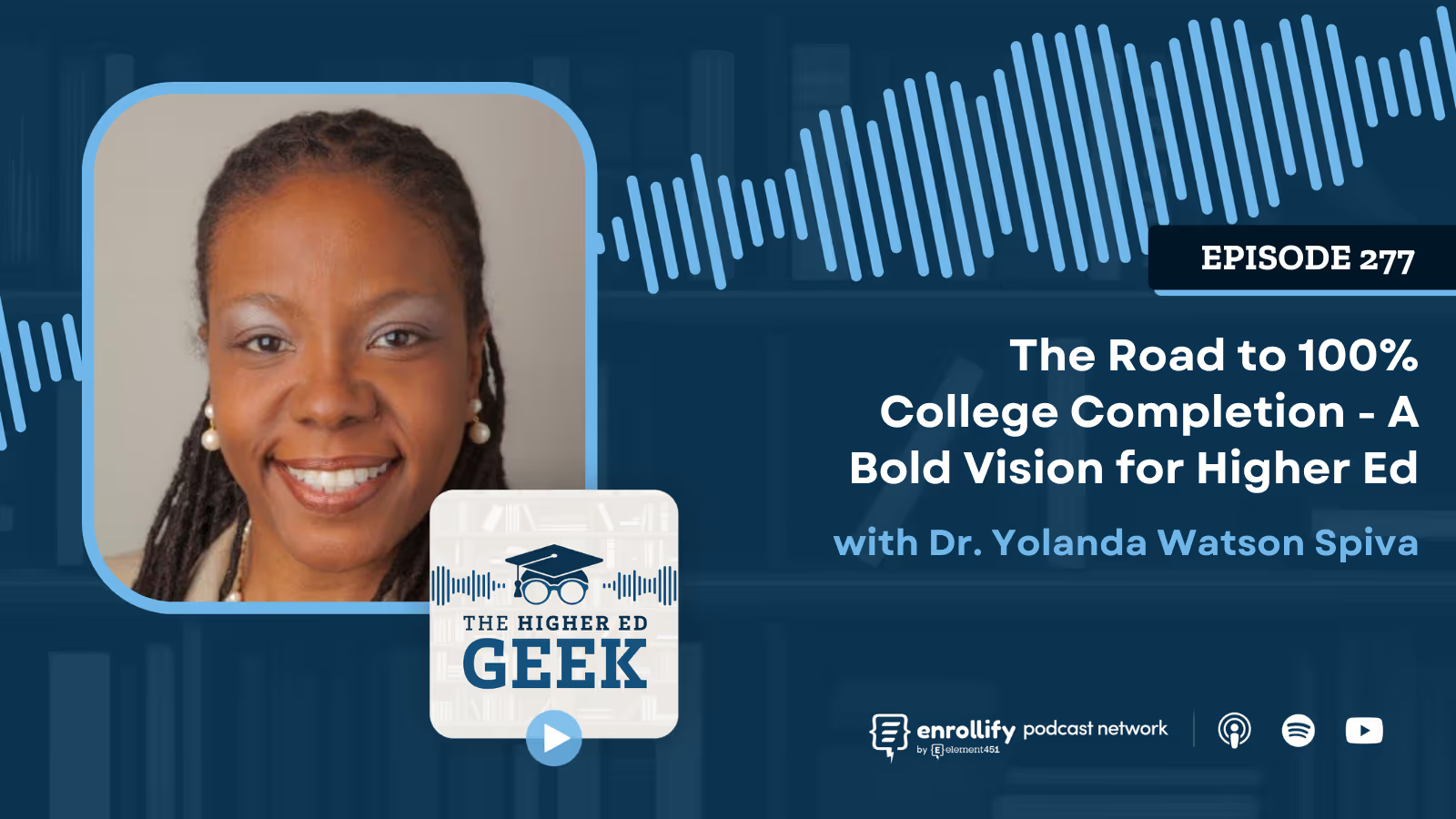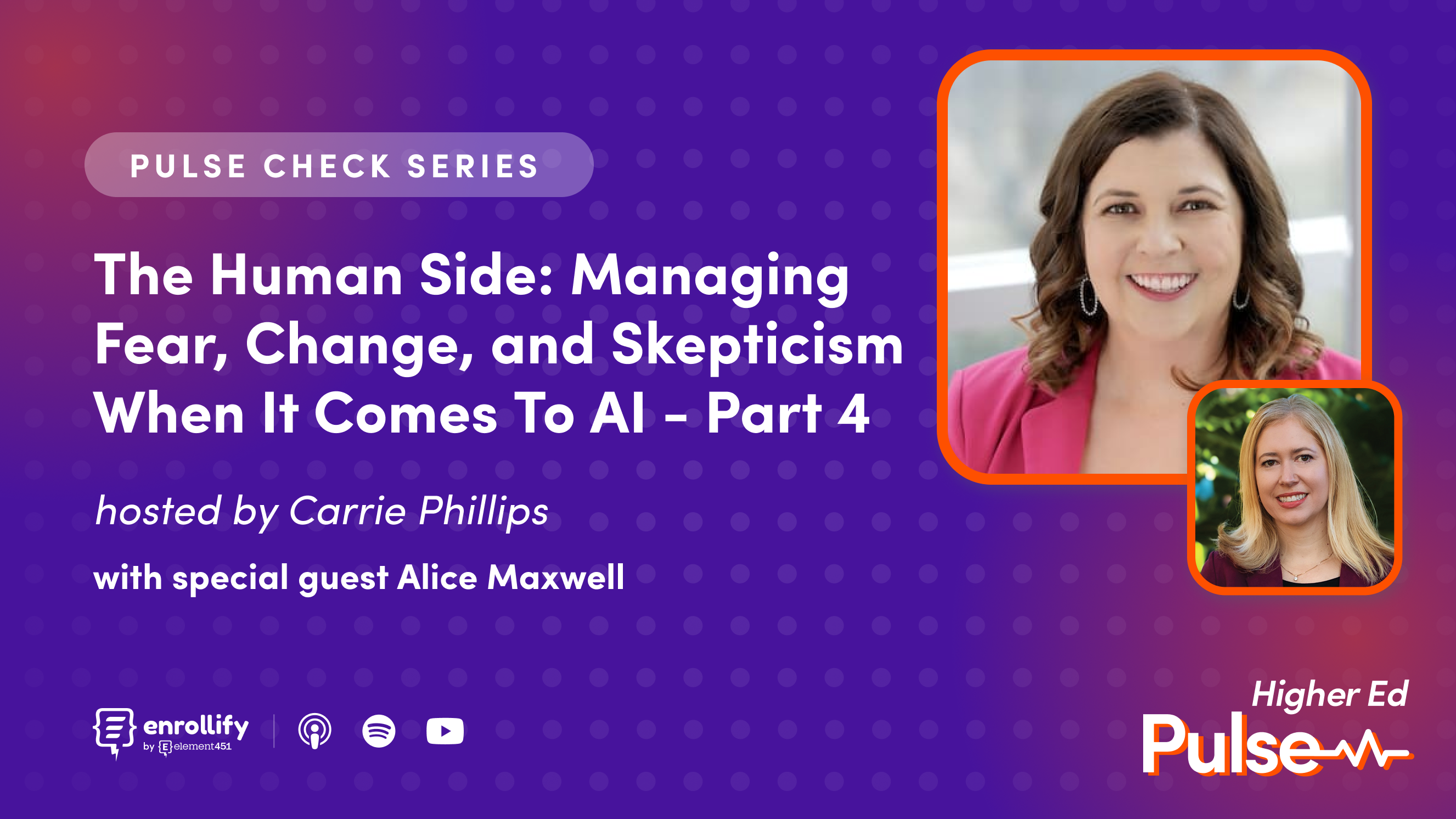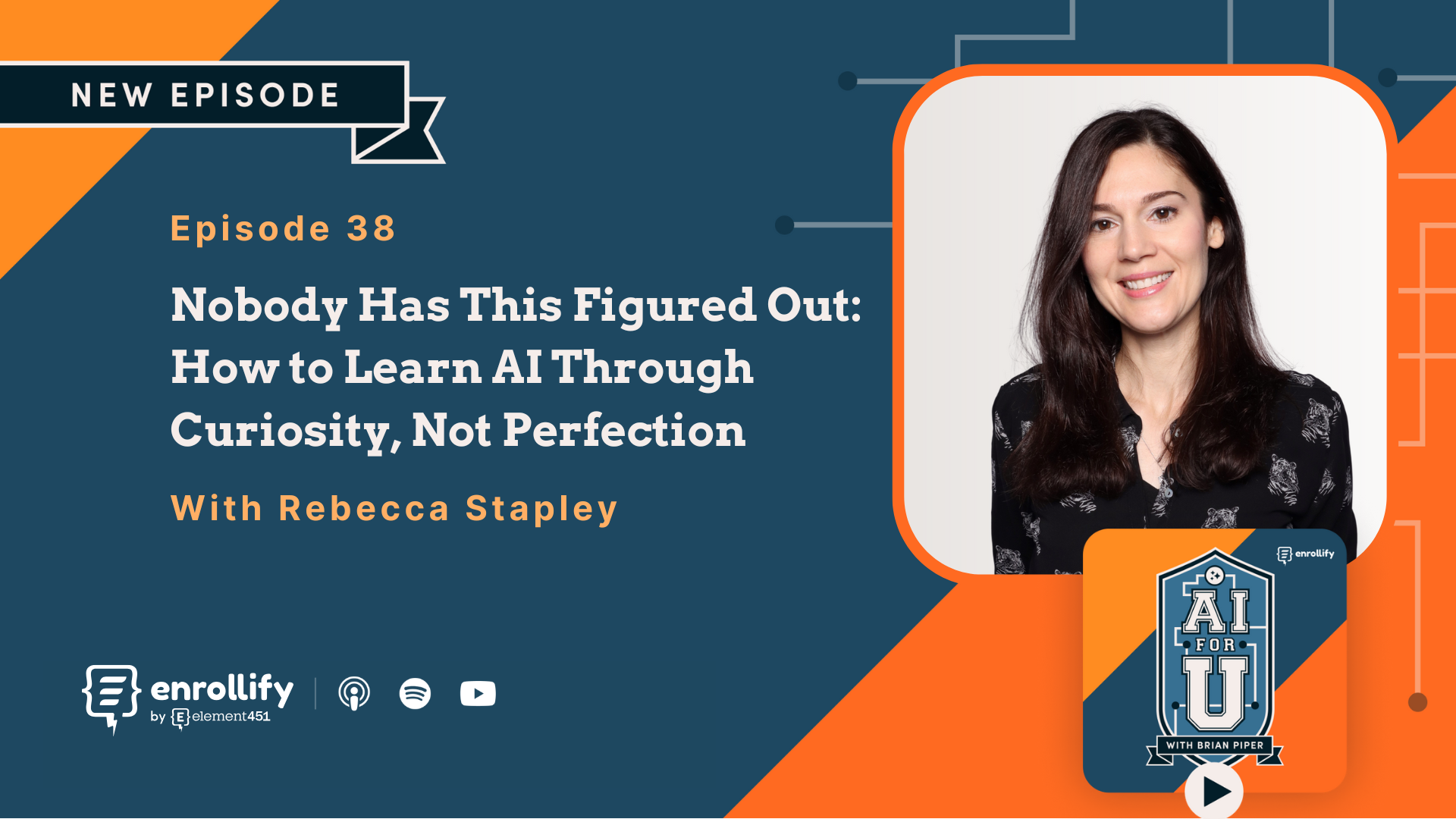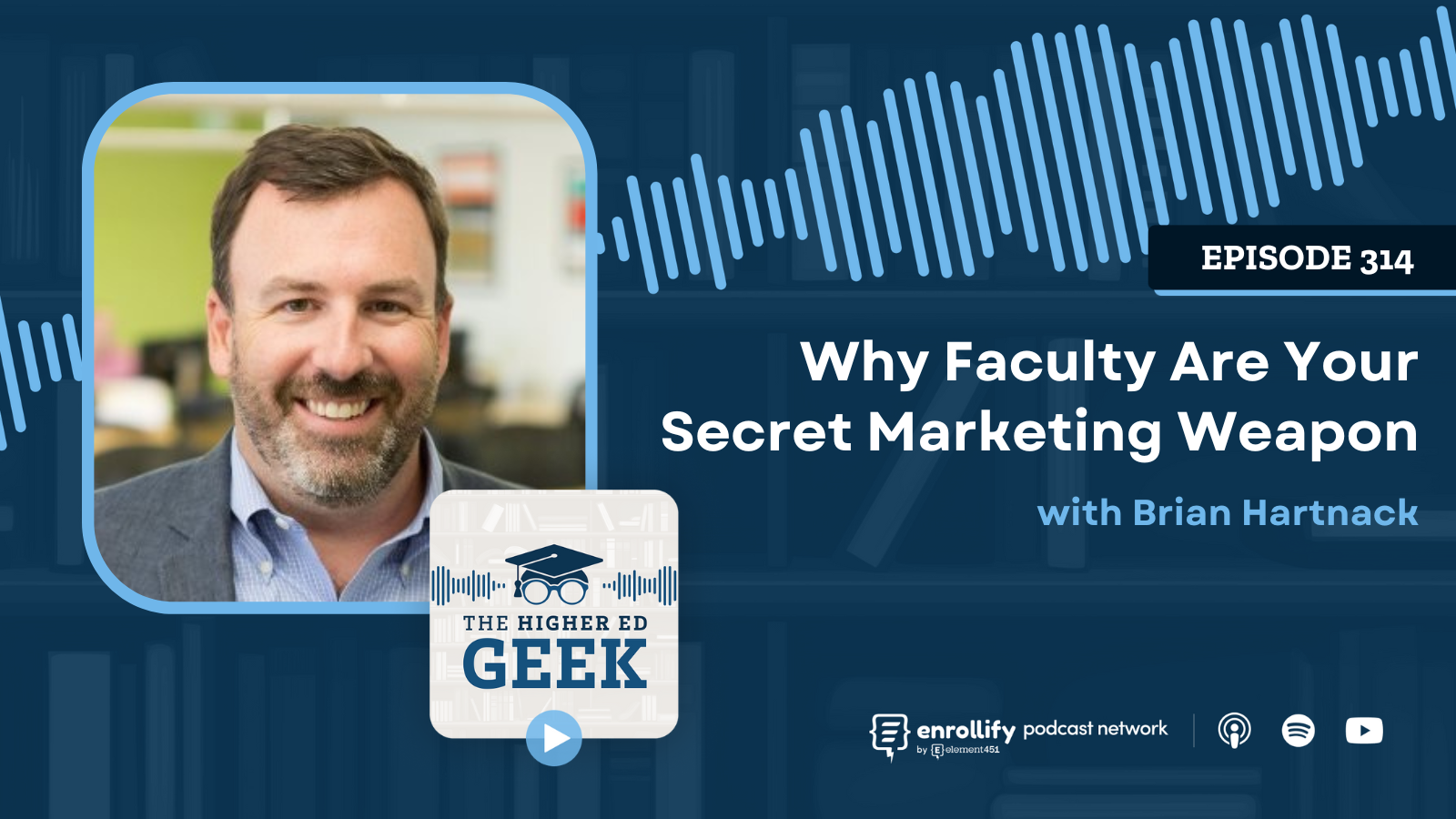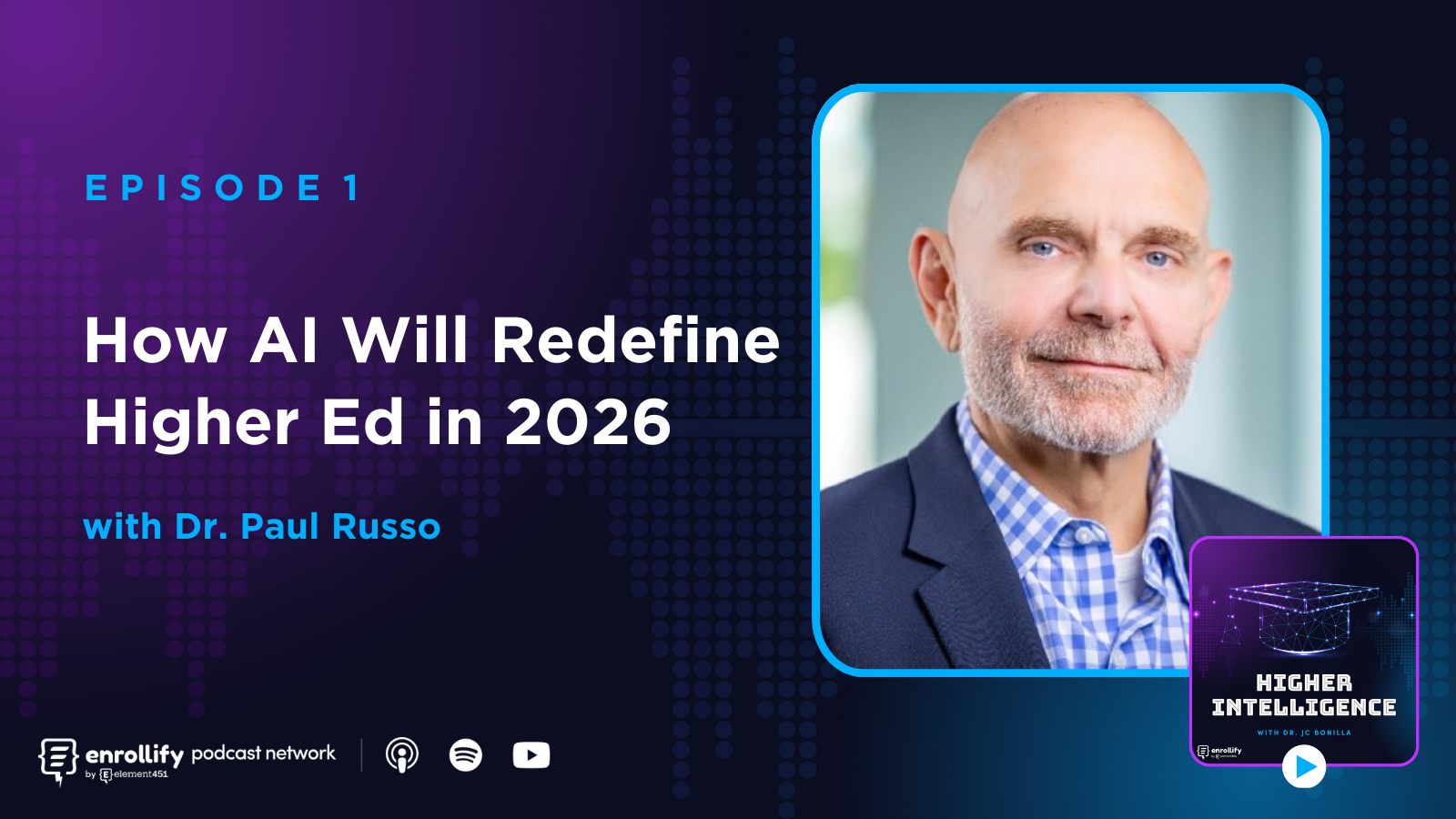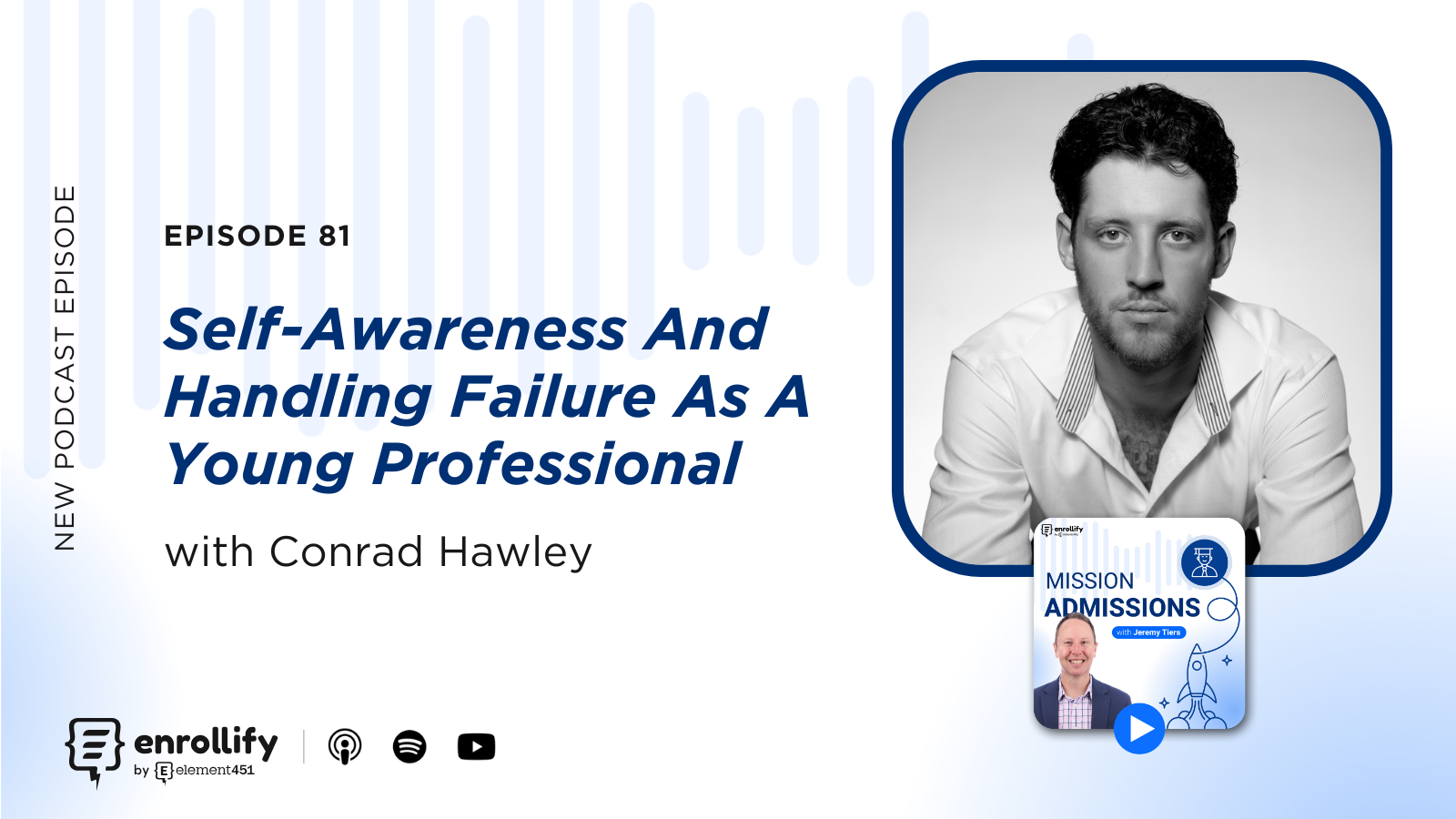About the Episode
Got a story to tell? An innovative idea to share? Fill out our guest nomination form and let's chat!
About the Episode:
In this special episode recorded on site at SXSW EDU, Dustin speaks with Dr. Yolanda Watson Spiva, President of Complete College America (CCA), a national advocacy organization dedicated to helping more students access, persist, and graduate from college on time. Yolanda shares CCA’s systems-level approach to student success, the importance of transfer-friendly policies, and how institutions must shift from being college-ready to student-ready. She also discusses CCA’s Council on Equitable AI and how AI can support, rather than hinder, student success. If you're passionate about higher ed reform, retention, and equity, this is an episode you won’t want to miss!
Key Takeaways
- Completion is the new access: CCA aims to shift the national conversation from access alone to college completion, advocating for policies that support student persistence and graduation.
- Student-ready colleges > college-ready students: Institutions must transform themselves to meet students where they are, not the other way around.
- Transfer pathways and articulation agreements are essential to combat student loss and improve degree efficiency across institutions and states.
- CCA’s Four Pillars—Purpose, Momentum, Structure, and Support—guide its systemic approach to student success strategies.
- AI has potential as a student success tool, but it must be implemented equitably and responsibly across higher ed.
- CCA supports institutional change at the state level, advocating for policy reforms and scalable practices rooted in data and research.
What is Complete College America and how does it approach student success?
Complete College America (CCA) is a national advocacy organization committed to increasing college completion rates—especially for adult learners and historically underserved populations. As President Yolanda Watson Spiva explains, CCA doesn’t work directly with students, but rather with states, systems, and consortia of institutions. Their goal is simple, yet bold: help more students not just access higher education, but actually complete it, and do so on time.
CCA’s strategies center around scaling proven practices that have been data-validated at institutions across the country. The organization sources successful models, refines them into replicable strategies, and provides guidance to help states and schools adopt them. Their two major streams of work—building movements (changing the narrative and policy landscape) and transforming institutions (changing systems to better serve today’s students)—are grounded in a clear framework that includes purpose, momentum, structure, and support.
This framework is key to creating what Spiva calls “student-ready institutions.” The idea flips the traditional script: rather than requiring students to be “college-ready,” institutions must adapt to serve the real students walking through their doors, many of whom are parenting, working, or returning to college later in life.
How is CCA tackling the stop-out problem and improving transfer pathways?
One of the recurring themes in this episode is the need for seamless transfer pathways and better retention strategies to reduce student stop-out. As Dustin and Yolanda discuss, the reality is that many students leave institutions—not because they’re failing academically, but because life happens or the institution isn’t a fit. Often, those students resurface elsewhere, but without a system that supports effective credit transfer, much of their prior effort goes to waste.
CCA’s state-focused model helps create policy environments where transfer articulation agreements are standard, not the exception. These agreements ensure students retain credits when they move between institutions, making degree completion more efficient. The conversation also touches on the crucial need for data-sharing across systems and ongoing communication with stop-out students, who might be willing to return if re-engaged properly.
By positioning themselves at the policy level, CCA is working to reduce friction across institutions and improve persistence metrics, advocating for students who may have left but still want to finish. Their aim isn’t just to improve institutional graduation rates—it’s to help the broader system support more flexible, accessible, and realistic completion journeys.
How does CCA view AI in higher education, and what’s their approach to equity?
Dr. Spiva also sheds light on CCA’s evolving work around AI in higher education, especially the equitable use of AI for student success. CCA recently launched the Council on Equitable AI and developed a playbook to help institutions implement AI tools responsibly. The message is clear: AI should be embraced, not feared—but it must be implemented with intentionality and inclusion.
There’s a lot of anxiety around AI—from faculty and administrators worried about academic integrity, to students unsure of how AI will affect their learning experiences. CCA’s approach starts with building AI literacy, not just for students but for the entire institution. This includes demystifying what AI is, addressing data bias, and ensuring that AI tools are accessible and reflective of diverse cultural inputs.
Rather than taking a reactionary stance, CCA encourages institutions to use AI as a support system, not a surveillance tool. That might mean deploying chatbots for 24/7 student support, using predictive analytics to spot at-risk students early, or streamlining administrative workflows to free up staff time for direct student engagement. It’s all about ensuring AI enhances—rather than replaces—the human touch in higher ed.
About the Show: The Higher Ed Geek Podcast explores the impact of edtech on the student experience by speaking with diverse leaders from institutions, companies, and nonprofit organizations. Each week we aim to provide an engaging, fun, and relevant dose of professional development that honors the wide range of work happening all across the higher ed ecosystem. Come geek out with us! The Higher Ed Geek Podcast is hosted by Dustin Ramsdell and is a proud member of the Enrollify Podcast Network.
Connect With Our Host:
Dustin Ramsdell
About The Enrollify Podcast Network:
The Higher Ed Geek is a part of the Enrollify Podcast Network. If you like this podcast, chances are you’ll like other Enrollify shows too!
Some of our favorites include Generation AI.
Enrollify is produced by Element451 — the next-generation AI student engagement platform helping institutions create meaningful and personalized interactions with students. Learn more at element451.com.
Attend the 2025 Engage Summit!
The Engage Summit is the premier conference for forward-thinking leaders and practitioners dedicated to exploring the transformative power of AI in education.
Explore the strategies and tools to step into the next generation of student engagement, supercharged by AI. You'll leave ready to deliver the most personalized digital engagement experience every step of the way.
👉🏻 Register now to secure your spot in Charlotte, NC, on June 24-25, 2025!







